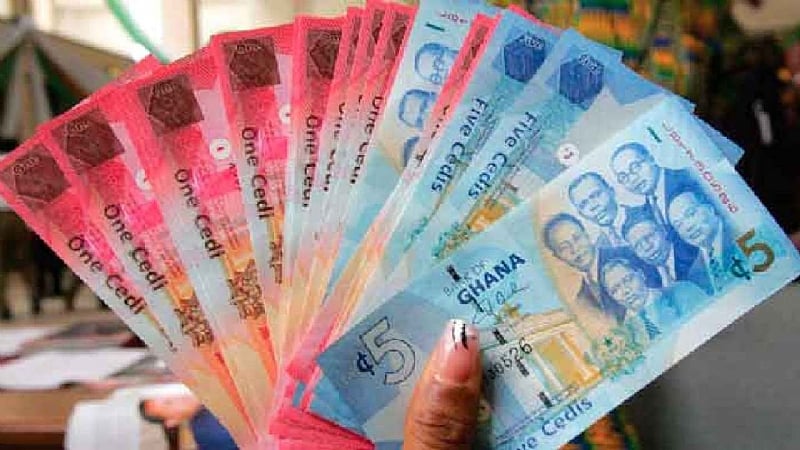The Ghanaian Cedi has experienced a notable appreciation against the US dollar, marking a positive trend in the currency market. As of April 26, 2025, data gathered from Cedirates.com, a reliable source for currency information in Ghana, indicates a buying rate of GHS14.67 per dollar and a selling rate of GHS15.38. This suggests a strengthening of the Cedi, allowing individuals and businesses to acquire dollars at a more favorable rate than previously observed. The difference between the buying and selling rates, known as the spread, reflects the profit margin for currency exchange providers. The relatively narrow spread in this instance points towards a stable and competitive currency market. This recent appreciation could be attributed to various factors, including improved economic performance, increased investor confidence, or positive shifts in global market dynamics.
Further insights into the Cedi’s performance can be gleaned from the rates offered at forex bureaus, which typically cater to smaller-scale transactions. At these bureaus, the exchange rate for converting dollars to cedis stands at GHS15.45, while the reverse transaction, converting cedis to dollars, is priced at GHS15.85. The slightly higher rates at forex bureaus compared to the interbank market are common, reflecting the additional operational costs and profit margins associated with these smaller-scale operations. The interbank market, where larger financial institutions trade currencies, provides a benchmark for overall currency valuation. Here, the Cedi is trading at GHS14.54 for buying dollars and GHS14.56 for selling dollars, reflecting a tighter spread due to the higher volumes and lower relative transaction costs.
Beyond the US dollar, the Cedi’s performance against other major currencies also exhibits strengthening trends. The average exchange rate for the British pound sits at GHS19.43 for those exchanging pounds for cedis and GHS20.44 for the opposite transaction. Similarly, the euro is trading at GHS16.57 when exchanging euros for cedis and GHS17.53 for converting cedis to euros. These rates indicate the relative value of the Cedi against these currencies and play a significant role in international trade and remittances. The Bank of Ghana’s interbank market rates provide further context, with the pound selling at GHS19.40 and the euro trading at GHS16.56. These rates typically influence the rates offered by other financial institutions and provide a measure of the official exchange rate.
Money transfer services, particularly those focused on remittances, offer competitive exchange rates for individuals sending money to Ghana. LemFi and Afriex, two prominent players in this space, provide attractive rates for dollar transfers from the US or the UK. LemFi offers a rate of GHS14.65 per dollar, while Afriex’s rate is slightly higher at GHS15.00 per dollar. For British pound transfers, LemFi provides a rate of GHS19.52, and Afriex offers GHS20.05. For euro transfers, Afriex offers a rate of GHS17.11, and LemFi provides GHS16.72 per euro. These specialized services cater to a significant portion of the Ghanaian diaspora and play a vital role in facilitating cross-border financial flows.
The rates offered by these money transfer operators often differ slightly from the interbank or forex bureau rates due to their specific business models and target markets. They often leverage technology and streamlined processes to offer competitive rates and faster transfer speeds, particularly for smaller-value transactions that are common in the remittance sector. The choice between different money transfer services often boils down to factors such as transfer fees, speed, and accessibility, with individuals opting for the service that best suits their specific needs and circumstances.
Finally, for digital subscriptions to international services like Netflix, Spotify, and Apple Music, payments made using Visa and Mastercard are subject to an exchange rate of GHS15.62. This rate applies to transactions processed through these international payment networks and may differ slightly from the rates offered by banks or other financial institutions. These rates are typically set by the payment processors and reflect the costs associated with international transactions and currency conversion. They are often subject to fluctuations based on prevailing market conditions and can vary depending on the specific service or platform being used. Understanding these various exchange rates and their influencing factors provides a comprehensive picture of the Ghanaian Cedi’s performance in the international currency market.














